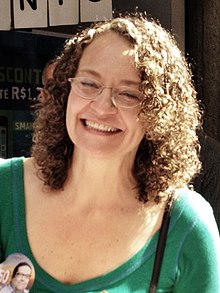
The Workers' Party is a centre-left political party in Brazil that is currently the country's ruling party. Some scholars classify its ideology in the 21st century as social democracy, with the party shifting from a broadly socialist ideology in the 1990s, although the party retains a left-wing and marginal far-left faction to this day. Founded in 1980, PT governed at the federal level in a coalition government with several other parties from 1 January 2003 to 31 August 2016. After the 2002 parliamentary election, PT became the largest party in the Chamber of Deputies and the largest in the Federal Senate for the first time. With the highest approval rating in the history of the country at one time, President Luiz Inácio Lula da Silva was PT's most prominent member. Dilma Rousseff, also a member of PT, was elected twice but did not finish her second term due to her impeachment in 2016. The party came back to power with Lula's victory in the 2022 presidential election.

The Socialism and Liberty Party is a left-wing political party in Brazil. The party describes itself as socialist and democratic.

Heloísa Helena Lima de Moraes Carvalho is a Brazilian nurse, schoolteacher, and politician, member of the political party Rede Sustentabilidade. She is the Brazilian woman to have received the third highest voting in a presidential race, ranking behind Marina Silva and Dilma Rousseff in 2010.

Olívio de Oliveira Dutra is a Brazilian politician. He is a founding member of the Workers' Party.

Tarso Fernando Herz Genro is a Brazilian politician from the southern state of Rio Grande do Sul. An associate of Luiz Inácio Lula da Silva, Genro was a leader of the Workers' Party (PT) in the 2000s.

Maria do Rosário Nunes is a Brazilian teacher and politician. She graduated in pedagogy from the Federal University of Rio Grande do Sul, and took a postgraduate degree at the University of São Paulo. From 2011 to 2014, she served as the Secretary for Human Rights under the Rousseff administration. With the exception of her three-year tenure as Human Rights Secretary, she has been a congresswoman since 2003, representing the southern Brazilian state of Rio Grande do Sul as a member of the Worker's Party (Brazil).

The state elections in Rio Grande do Sul in 2010 were held at the same time as Brazil's federal elections October 3. Since 1994, as a result of a constitutional amendment that reduced the presidential term to four years, all federal and state elections in Brazil are held on the same date. The state elections decide governors and the membership of the State Legislative Assemblies. Additionally, members of Congress are elected by the people of each state.
Rio Branco is a neighbourhood (bairro) of the city of Porto Alegre, the state capital of Rio Grande do Sul, in Brazil. It was created by Law 2022 from December 7, 1959.

The Rio Grande do Sul gubernatorial election was held on 5 October 2014 to elect the next governor of the state of Rio Grande do Sul. Since no candidate received more than 50% of the vote in the first round, a second-round runoff election was held on 26 October.

Tereza Helena Gabrielli Barreto Campello is a Brazilian economist graduated from the Federal University of Uberlândia and Doctor in Public Health from FioCruz. She was the minister of Social Development and Fight against Hunger during the government of President Dilma Rousseff. She is international consultant on social development and social protection, visiting fellow in the Future Food Beacon of Excellence at University of Nottingham (UK) University of Nottingham (UK) and professor and research associate at the Oswaldo Cruz Foundation

Manuela Pinto Vieira d'Ávila is a Brazilian journalist, writer and politician, a member of the Communist Party of Brazil since 2001.

Sônia Bone de Souza Silva Santos, usually known as Sônia Guajajara, is a Brazilian indigenous activist, environmentalist, and politician. A member of the Socialism and Liberty Party (PSOL), she was initially a candidate for President of Brazil in the 2018 Brazilian general election, before being chosen as the vice presidential running mate of nominee Guilherme Boulos. This made her the first indigenous person to run for a federal executive position in Brazil. In 2022, Guajajara was named one of the 100 most influential people in the world by Time.

Fernanda Melchionna e Silva is a Brazilian politician and former bank clerk and librarian. She has spent her political career representing the state of Rio Grande do Sul, having served as federal deputy representative since 2019.
The 2022 Rio Grande do Sul state election took place in the state of Rio Grande do Sul, Brazil on 2 October 2022. Voters elected a Governor, Vice Governor, one Senator, 31 representatives for the Chamber of Deputies and 55 Legislative Assembly members, with a possible second round to be held on 30 October 2022. Former governor Eduardo Leite, was eligible for a second term and announced that he's running for reelection.

The governor of Rio Grande do Sul is the head of government of the state's executive branch, assisted by his secretaries, whom he freely chooses. Elected by absolute majority in universal suffrage, together with the vice-governor, his term lasts four years; since 1997, reelection has been possible, and although all have sought it, none has succeeded. The current governor is Eduardo Leite, since January 1, 2023.
Fernando Marcel Genro Robaina is a Brazilian former footballer who played as a forward.

Daiana Silva dos Santos or, simply, Daiana Santos is a Brazilian politician who is a member of the Communist Party of Brazil (PCdoB). After serving on the council of Porto Alegre, she was elected in late 2022 as a deputy in the federal Chamber of Deputies for the 2023 – 2027 term.

Juliana Daudt Brizola is a Brazilian lawyer and politician. She was a councilwoman in the city of Porto Alegre from 2009 to 2011 and later became a state deputy in the state of Rio Grande do Sul from 2011 to 2023. She is currently affiliated with the Democratic Labour Party (PDT), which she has been affiliated with since she was 18 years old. She is the granddaughter of Leonel Brizola, as well as the sister of fellow politicians Brizola Neto and Leonel Brizola Neto, being the twin sister of the latter.

Jairo Jorge da Silva is a Brazilian journalist and politician who was elected mayor of the city of Canoas, in the state of Rio Grande do Sul, in 2020. He had previously served in the position from 2009 to 2017, as well as a councilman in the city from 1989 to 1993.
The 2024 Porto Alegre mayoral election took place on 6 October 2024. Voters elected a mayor, a vice mayor, and 36 councillors. The incumbent mayor, Sebastião Melo, a member of the Brazilian Democratic Movement (MDB), was elected in 2020 for his first term and ran for reelection.

















